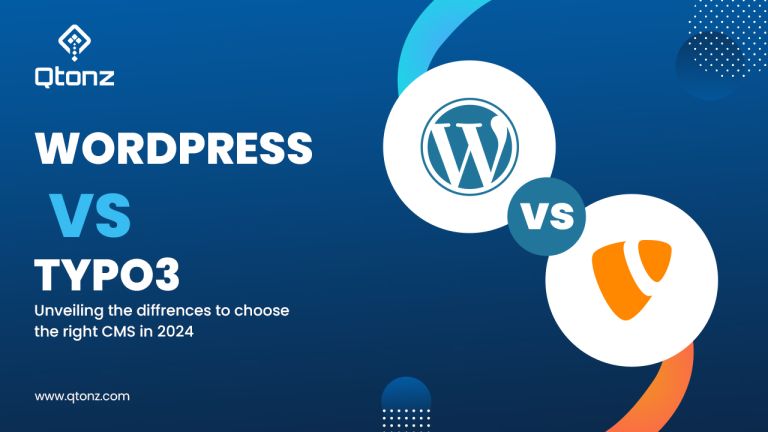Overview
In today’s digital landscape, where websites are vulnerable to various threats ranging from cyber attacks to server failures, ensuring the safety and security of your WordPress site is paramount. One of the most effective ways to safeguard your website’s data and content is through regular backups. In this comprehensive guide, we will delve into the importance of backups, the evolution of backup tools, common issues that can arise without proper backups, and provide you with a curated list of the top 15 WordPress backup plugins for 2024.
What is WordPress Backup?
A backup is essentially a duplicate copy of your website's data, files, and content that is stored separately from your primary website. This copy serves as a safeguard against data loss caused by various unforeseen circumstances such as hacking, malware infections, server crashes, or accidental deletions.
Backups capture your website's entire structure, including its database, media files, themes, plugins, and configurations, ensuring that all essential components are preserved. By regularly creating backups, you create a snapshot of your website at a specific point in time, allowing you to restore it to that state if needed.
Backups can be stored locally on your server, externally on cloud storage services, or on remote backup servers. It's essential to store backups in a secure location separate from your primary website to ensure that they remain accessible even if your website experiences a catastrophic failure or security breach.
Why Regular WordPress Backup is Important?
Regular backups are a critical component of effective website management, providing essential protection against data loss, security threats, and downtime. By implementing a reliable backup strategy and ensuring that backups are performed regularly, you can safeguard your website’s data, maintain business continuity, and enjoy peace of mind knowing that your online presence is protected. Here’s why:
- Data Protection: Regular backups ensure that your website’s valuable data, including content, images, and user information, is safely preserved. In the event of data loss due to hacking, malware, server failures, or human error, backups provide a reliable means of restoring your website to its previous state, minimizing downtime and preserving your online presence.
- Security: Cyber threats such as hacking, malware infections, and phishing attacks pose a constant risk to website security. Regular backups serve as a crucial line of defense against these threats by enabling you to roll back to a clean, secure version of your website in case of a security breach.
- Business Continuity: Downtime can have significant repercussions for businesses, including loss of revenue, damage to reputation, and diminished user trust. Regular backups help mitigate the impact of downtime by allowing you to quickly restore your website to a functioning state, ensuring business continuity and minimizing disruptions to your operations.
- Protection Against Human Error: Mistakes happen, and even well-intentioned website administrators can inadvertently delete important files or make changes that compromise website functionality. Regular backups act as a safety net, enabling you to revert to a previous backup and undo any unintended changes, thereby avoiding potentially costly errors.
- Compliance and Legal Requirements: Many industries are subject to regulatory compliance and data protection laws that require businesses to implement robust backup and data recovery measures. Regular backups help ensure compliance with these requirements by providing a reliable means of safeguarding sensitive data and demonstrating due diligence in protecting user privacy.
- Peace of Mind: Knowing that your website is backed up regularly provides peace of mind, allowing you to focus on running your business or managing your content without constantly worrying about potential data loss or security threats. Regular backups give you confidence that your website’s data is secure and accessible whenever you need it.
15 Scary Data Loss Statistics and Facts to keep in mind
- About one in 100 hard drives fails annually. (InvenioIT)
- 28% of ransomware attacks cause data loss. (InvenioIT)
- 33% of companies’ folders aren’t well protected. (InvenioIT)
- In 2020, the Dutch government lost two external hard disks with the personal data of over 6.9 million organ donors. (ZDNet)
- Apollo experienced the biggest security attack in 2018 and lost nine billion customer records. (Wired, NY Times)
- 30% of companies experience data loss due to server outages. (InvenioIT)
- 84% of all businesses stored data and backups in the cloud. (InvenioIT)
- 20% of respondents claim they either haven’t tested their disaster recovery plans or don’t have them. (451 Research)
- About 30% of organizations don’t do recovery testing. (InvenioIT)
- 37% of SMBs have experienced data loss in the cloud. (InvenioIT)
- 43% of cyber attackers hit small businesses. (OSIbeyond)
- 94% of small businesses receive malware via email. (Fundera)
- 49% of server outages lead to over $100,000 losses to companies. (451 Research)
- 60% of small companies cease to exist within six months of a data breach. (Cybercrime Magazine)
- 93% of companies that lost their data center for 10 days filed for bankruptcy one year after the incident. (UniTrends)
Manual Backup vs. Automatic Backup
Both manual and automatic backups serve the purpose of protecting your website’s data, but they differ in terms of process, convenience, and reliability. Here’s a comparison between the two:
Manual Backup:
- Process: Manual backups require you to initiate the backup process manually by accessing your website’s backend, accessing the server files, and downloading copies of your website’s database and files. This process can be time-consuming and requires technical knowledge to ensure that all essential data is included in the backup.
- Frequency: The frequency of manual backups depends on your diligence and schedule. While you can perform manual backups as often as you’d like, the responsibility falls on you to remember to do so regularly, which can lead to inconsistencies and lapses in backup coverage.
- Reliability: Manual backups rely entirely on human intervention, which introduces the potential for errors, oversights, and forgetfulness. If you forget to perform backups regularly or overlook important data during the backup process, you may risk incomplete or outdated backups, compromising your ability to restore your website in case of emergencies.
- Control: Manual backups offer greater control over the backup process, allowing you to customize the backup settings, select specific files or directories to include, and store backups in preferred locations. However, this control also requires careful attention to detail and thoroughness to ensure that all necessary data is captured and preserved.
Automatic Backup:
- Process: Automatic backups are initiated and executed automatically by backup systems or plugins, according to predefined schedules or triggers. Once configured, automatic backups operate in the background, requiring minimal intervention or oversight from website administrators.
- Frequency: Automatic backups offer consistent and reliable backup coverage, as they adhere to predefined schedules or triggers, such as daily, weekly, or monthly backups. This regularity ensures that your website’s data is backed up consistently and reflects the latest changes and updates.
- Reliability: Automatic backups minimize the risk of human error and oversight by automating the backup process. Since backups are performed automatically according to predefined schedules or triggers, you can trust that your website’s data is consistently protected, reducing the risk of data loss due to human factors.
- Convenience: Automatic backups offer unparalleled convenience, as they require minimal effort and intervention from website administrators. Once configured, automatic backup systems operate seamlessly in the background, freeing up your time and attention to focus on other aspects of website management.
While manual backups offer greater control over the backup process, they require more effort, diligence, and technical knowledge to execute effectively. Automatic backups, on the other hand, provide convenience, consistency, and reliability, making them an ideal choice for website owners who prioritize efficiency and peace of mind. Ultimately, the choice between manual and automatic backups depends on your preferences, technical proficiency, and the specific needs of your website.
Evolution of Backup Tools
The landscape of backup tools for WordPress websites has evolved significantly over the years, driven by advancements in technology, changes in website management practices, and emerging security threats. Here’s a brief overview of the evolution of backup tools:
- Manual Backups: In the early days of WordPress, website owners relied primarily on manual backup methods, such as manually downloading copies of their website’s files and databases via FTP (File Transfer Protocol) or using hosting control panel tools. While manual backups provided basic protection, they were time-consuming, prone to errors, and required technical knowledge to execute effectively.
- Plugin-Based Backups: The advent of backup plugins revolutionized the way WordPress websites were backed up, offering user-friendly interfaces, automated backup scheduling, and one-click restoration features. Popular backup plugins such as UpdraftPlus, BackupBuddy, and VaultPress (now part of Jetpack) became go-to solutions for website owners, offering a convenient and efficient way to protect their data.
- Cloud-Based Backups: With the rise of cloud computing and storage services, many backup solutions began leveraging cloud technology to store backups securely offsite. Cloud-based backup services such as Amazon S3, Google Cloud Storage, and Dropbox provided scalable, reliable, and cost-effective storage options for website backups, reducing reliance on local storage and mitigating the risk of data loss due to hardware failures or disasters.
- Incremental Backups: Traditional backup methods involved creating full backups of website data each time, resulting in large backup files and increased storage requirements. Incremental backups, introduced in more recent backup solutions, offer a more efficient approach by only backing up data that has changed since the last backup. This reduces backup file sizes, speeds up backup processes, and minimizes resource usage, making backups more manageable and cost-effective.
- Integrated Backup Services: Many managed WordPress hosting providers now offer integrated backup services as part of their hosting plans. These services often include automated backups, one-click restoration, and additional features such as malware scanning, security audits, and staging environments. Integrated backup services provide website owners with a comprehensive backup solution tailored to their hosting environment, simplifying the backup process and ensuring data protection.
- Continuous Backup Solutions: Continuous backup solutions take automatic backups to the next level by capturing changes to website data in real-time or at frequent intervals. These solutions offer near-instantaneous recovery capabilities, allowing website owners to restore their websites to precise points in time with minimal data loss. Continuous backup solutions are particularly valuable for websites with high traffic, frequent updates, or mission-critical operations.
In summary, the evolution of backup tools for WordPress websites has been marked by advancements in automation, cloud technology, efficiency, and integration. From manual backups to cloud-based solutions and continuous backup services, website owners now have a wide range of options to choose from to protect their data and ensure the security and continuity of their WordPress websites.
Types or Ways of WordPress Backup
WordPress backups can be categorized into different types or methods, each offering unique advantages and considerations. Here are the common types of WordPress backups:
- Full Backups: A full backup includes all files and data associated with your WordPress website, including the WordPress core files, themes, plugins, media uploads, and the database. Full backups provide comprehensive coverage but may require more storage space and time to create and restore.
- Database-Only Backups: Database-only backups focus solely on backing up your WordPress site’s database, which contains all your site’s content, settings, and user information. These backups are typically smaller in size and quicker to create and restore compared to full backups. However, they may not capture changes made to files or configurations outside the database.
- File-Only Backups: File-only backups involve backing up only the files and directories associated with your WordPress site, such as the WordPress core files, themes, plugins, and uploaded media. While file-only backups are quicker to create and restore than full backups, they may not capture changes made within the database, such as new posts or comments.
- Scheduled Backups: Scheduled backups are automated backups that occur at regular intervals, such as daily, weekly, or monthly. These backups are typically configured using backup plugins or hosting control panel tools and ensure that your website’s data is backed up consistently and reliably without manual intervention.
- Manual Backups: Manual backups involve initiating the backup process manually, typically through a hosting control panel or backup plugin interface. While manual backups offer greater control over the backup process, they require manual intervention and may be prone to errors or oversights if not performed regularly.
- Incremental Backups: Incremental backups capture only the changes made to your website’s files or database since the last backup, rather than creating a full backup each time. This reduces backup file sizes, storage requirements, and backup durations, making backups more efficient and manageable.
- Offsite Backups: Offsite backups involve storing backup copies of your website’s data in a location separate from your web server or hosting environment. This provides an additional layer of protection against data loss due to server failures, disasters, or security breaches affecting your primary hosting environment.
- Cloud Backups: Cloud backups leverage cloud storage services, such as Amazon S3, Google Cloud Storage, or Dropbox, to store backup copies of your website’s data securely offsite. Cloud backups offer scalability, reliability, and accessibility, making them an ideal choice for storing critical backup data.
By understanding the different types of WordPress backups available, you can choose the backup method or combination of methods that best suit your website’s needs, resources, and preferences. Whether you opt for full backups, database-only backups, scheduled backups, or offsite backups, implementing a regular backup strategy is essential for safeguarding your WordPress website’s data and ensuring its security and integrity.
The Perils of Neglecting WordPress Backups
The absence of proper backups exposes WordPress websites to a wide range of risks and challenges. Here’s a more detailed exploration of common issues and problems that can arise without proper backups for WordPress websites
- Data Loss: Perhaps the most significant risk of not having proper backups is the potential for data loss. This loss can occur due to various reasons such as accidental deletion, hacking, malware infections, server failures, or software errors. Without backups, recovering lost data becomes nearly impossible, leading to irreversible damage to your website’s content, settings, and functionality.
- Downtime: When critical website data is lost or corrupted, it often results in downtime as website owners scramble to restore their websites to a functional state. Downtime can have significant consequences for businesses, including lost revenue, diminished user trust, and damage to reputation. Without proper backups, downtime can persist for extended periods, exacerbating the impact on businesses and website owners.
- Security Breaches: Websites without proper backups are more vulnerable to security breaches, as attackers exploit vulnerabilities to gain unauthorized access, inject malicious code, or compromise sensitive data. In the event of a security breach, having recent backups allows website owners to restore their websites to a clean, secure state, minimizing the impact of the breach and preventing further damage.
- Content Loss: Without backups, valuable website content such as blog posts, articles, images, and media files are at risk of being lost permanently. Content loss can disrupt user engagement, diminish SEO rankings, and undermine the overall effectiveness of your website as a communication and marketing platform. Backups ensure that your content remains safe and accessible, even in the face of unexpected challenges or disasters.
- Financial Loss: The consequences of not having proper backups can extend beyond the digital realm and impact businesses financially. Data loss, downtime, and security breaches can result in lost sales, missed opportunities, regulatory fines, legal fees, and expenses associated with remediation efforts. These financial losses can be substantial and have long-lasting repercussions for businesses that fail to prioritize backup strategies.
- Reputation Damage: Website downtime, data breaches, and content loss can damage the reputation and credibility of businesses and website owners. Customers, clients, and visitors may lose trust in your brand if they experience difficulties accessing your website or encounter security issues. Rebuilding trust and restoring a tarnished reputation can be challenging and time-consuming, underscoring the importance of proactive backup measures.
- Compliance Violations: Many industries are subject to regulatory compliance requirements and data protection laws that mandate the implementation of robust backup and data recovery measures. Failure to comply with these regulations can result in hefty fines, legal liabilities, and reputational damage for businesses. Proper backups help ensure compliance with regulatory requirements and demonstrate a commitment to protecting user privacy and data security.
- Operational Disruptions: Without proper backups, website owners may experience operational disruptions that impact their ability to conduct business effectively. These disruptions can manifest in various forms, including email outages, payment processing failures, customer support delays, and inventory management issues. Backups provide a safety net that allows businesses to maintain operations continuity and minimize disruptions during emergencies.
Why do you need a good WordPress backup plugin?
Investing in a reliable backup plugin is crucial for several reasons:
- Ease of Use: A good backup plugin offers a user-friendly interface and intuitive features, making it easy for website owners to schedule backups, restore data, and manage backup settings efficiently.
- Advanced Features: Premium backup plugins often come with advanced features such as incremental backups, automatic backups before updates, and integration with cloud storage services, providing enhanced security and flexibility.
- Security: A reputable backup plugin helps protect your website’s data by implementing robust encryption protocols, ensuring that your backups are stored securely and are resistant to unauthorized access or tampering.
- Reliability: Reliable backup plugins offer dependable performance, ensuring that your backups are executed consistently and without errors. This reliability is crucial for maintaining the integrity of your website’s data and ensuring quick recovery in case of emergencies.
- Customer Support: Opting for a reputable backup plugin provides access to dedicated customer support, allowing you to seek assistance and resolve any issues promptly. This support is invaluable during emergencies or technical challenges.
- Compatibility: A good backup plugin is designed to be compatible with various hosting environments, WordPress configurations, and third-party plugins, ensuring seamless integration and optimal performance.
- Long-Term Viability: Choosing a backup plugin with a proven track record and regular updates ensures long-term viability and compatibility with future WordPress versions and security standards. This ensures that your backup solution remains effective and reliable over time.
By selecting a good backup plugin, you can streamline your backup process, enhance the security of your website, and minimize the risk of data loss, providing peace of mind and ensuring the long-term success of your online presence.
Difference Between Free WordPress Backup Plugins and Paid WordPress Backup Plugins
When it comes to choosing a backup plugin for your WordPress website, you’ll often encounter both free and paid options. Understanding the differences between these two categories can help you make an informed decision:
- Features and Functionality: Paid backup plugins typically offer a more extensive range of features and functionalities compared to their free counterparts. These may include automated scheduling, incremental backups, cloud storage integration, one-click restoration, and advanced security measures. Free plugins, while functional, may have limitations in terms of features and may lack some of the advanced functionalities available in paid versions.
- Reliability and Support: Paid backup plugins often come with dedicated customer support, ensuring prompt assistance and resolution of any issues or queries. Additionally, paid plugins are usually developed and maintained by professional teams, leading to greater reliability and regular updates. On the other hand, free plugins may rely on community support, which may not always be as responsive or comprehensive.
- Security and Data Protection: Paid backup plugins typically prioritize security and data protection, implementing robust encryption protocols and security measures to safeguard your backups. They may also offer features such as password protection and two-factor authentication for enhanced security. While free plugins may offer basic security features, they may not provide the same level of protection against cyber threats and unauthorized access.
- Storage and Scalability: Paid backup plugins often provide more extensive storage options and scalability, allowing you to store larger amounts of data and scale your backup solution as your website grows. They may also offer integration with popular cloud storage services, providing seamless storage and accessibility options. Free plugins, on the other hand, may have limitations on storage capacity and scalability, potentially requiring additional configurations or upgrades for larger websites.
- Ease of Use and User Experience: Paid backup plugins typically prioritize user experience and ease of use, offering intuitive interfaces and streamlined workflows. They may provide comprehensive documentation, tutorials, and guides to help users get started quickly and efficiently. Free plugins may vary in terms of user experience, with some offering intuitive interfaces similar to paid plugins, while others may require more technical knowledge and customization.
Who Needs a Paid Plugin and Who Can Utilize Free Plugin?
Choosing between a paid backup plugin and a free one depends on several factors, including your website’s size, complexity, budget, and security requirements. Here’s a breakdown of who might benefit from each:
Paid Plugin Users:
- Business Websites: Businesses with high-traffic websites, e-commerce stores, or mission-critical online platforms often require advanced backup features and dedicated support to ensure data integrity and business continuity.
- Professional Bloggers: Bloggers who rely on their websites for income or have a substantial amount of content can benefit from the additional features and reliability offered by paid backup plugins.
- Websites with Sensitive Data: Websites that handle sensitive customer information, such as personal details or payment data, should prioritize security and invest in a paid backup solution with robust encryption and security features.
- Large Websites: Websites with a large number of pages, posts, or media files may require more extensive storage options and scalability, which are often provided by paid backup plugins.
Free Plugin Users:
- Personal Blogs: Individuals or hobbyists running personal blogs or small websites with minimal traffic may find that free backup plugins offer adequate functionality for their needs.
- Non-Profit Organizations: Non-profit organizations with limited budgets may opt for free backup plugins to ensure basic data protection without incurring additional costs.
- Static Websites: Simple, static websites with minimal content and infrequent updates may not require the advanced features offered by paid backup plugins and can utilize free options effectively.
- Budget-Conscious Users: Users on a tight budget who prioritize cost savings over additional features or premium support may opt for free backup plugins as a cost-effective solution.
Ultimately, the decision to use a paid or free backup plugin depends on your specific requirements, preferences, and budget constraints. It’s essential to evaluate the features, security, support, and scalability offered by each option to determine the best fit for your website’s needs. Additionally, regularly reassessing your backup strategy and adjusting it as your website grows and evolves ensures that you continue to maintain robust data protection and security measures over time.
Essential Data to Include in WordPress Backups?
In a WordPress backup, several types of data should be considered to ensure comprehensive protection and the ability to fully restore your website if needed. Here’s a breakdown of the essential data that should be included in a WordPress backup:
- Database: The WordPress database contains all of your website’s core content, including posts, pages, comments, users, settings, and plugin configurations. It’s crucial to back up the database regularly to ensure that you can restore your website’s content and functionality.
- WordPress Files: This includes all of the files that make up your WordPress installation, including core WordPress files, theme files, plugin files, and uploaded media files such as images, videos, and documents. Backing up these files ensures that you can restore your website’s appearance and functionality, including any customizations or modifications you’ve made.
- Configuration Files: These files contain important configuration settings for your WordPress installation, including the wp-config.php file, which contains database connection details and other site-specific configuration settings. It’s essential to back up these files to ensure that you can properly configure your website when restoring from a backup.
- .htaccess File: The .htaccess file contains server configuration settings that can affect your website’s performance, security, and functionality. Backing up this file ensures that you can restore these settings if needed.
- Customizations and Modifications: If you’ve made any customizations or modifications to your WordPress installation, such as custom theme files, child themes, custom plugins, or custom code snippets, it’s essential to include these in your backup to preserve your website’s unique functionality and appearance.
- External Files and Resources: If your website relies on external files or resources hosted outside of your WordPress installation, such as external scripts, fonts, or APIs, it’s essential to include these in your backup or ensure that they can be easily restored or reconfigured if needed.
By including these types of data in your WordPress backup, you can ensure that you have a comprehensive and reliable backup of your website that can be used to restore its content, appearance, functionality, and configuration in the event of data loss, corruption, or other emergencies.
TOP 15 WordPress Backup Plugins for 2024:
Here’s a curated list of the top 15 WordPress backup plugins for 2024:
- Solid Backups (Formerly, Backup Buddy)
- UpdraftPlus: WordPress Backup & Migration Plugin
- BlogVault WordPress Backup Plugin – Migration, Staging, and Backups
- Duplicator – WordPress Migration & Backup Plugin
- Jetpack VaultPress Backup
- WP Time Capsule
- WPvivid
- BackWPup – WordPress Backup Plugin
- Backup Migration
- WP Database Backup
- Total Upkeep by BoldGrid
- All-in-One WP Migration
- CodeGuard
- WebToffee – WordPress Backup & Migration
- Backuply
These plugins offer a wide range of features and functionalities, ensuring that you can choose the one that best suits your backup needs.
Note: This list includes both Free and Premium plugins. We assume you are serious enough for your business and data that if needed you can pay more for the data security.
WordPress Site Backup Features from Hosting Servers
Many WordPress hosting providers offer backup and restore features as part of their hosting plans. Here’s a list of some popular WordPress hosting servers known for providing backup and restore functionality:
- Bluehost
- SiteGround
- Hostinger
- HostGator
- DreamHost
- WP Engine
- Kinsta
- A2 Hosting
- InMotion Hosting
- Flywheel
- Liquid Web
- GoDaddy
- GreenGeeks
- Nexcess
These hosting providers typically offer automated backups, manual backup options, and restoration tools to help you protect and restore your WordPress website’s data in case of emergencies. It’s essential to review the backup features and policies of each hosting provider to ensure they meet your specific requirements and preferences.
Conclusion:
In conclusion, safeguarding your WordPress website with regular backups is essential for protecting your data, ensuring business continuity, and providing peace of mind. By choosing one of the top 15 WordPress backup plugins for 2024, you can fortify your website’s security and minimize the risk of data loss in the ever-evolving digital landscape.







5 Comments
Thanks a lot for designing such an insightful and even fun web space. I really am excited to the data as soon as the moment manifests itself! Thanks a lot yet again for offering this ready towards worldwide community!
You’re so creative!
Real superb information can be found on site.
This is really interesting, You’re a very skilled blogger.
I have joined your feed and look forward too
seeking more of your great post. Also, I’ve shareed your website in my social networks! https://Odessaforum.BIZ.Ua/
Your point of view caught my eye and was very interesting. Thanks. I have a question for you.